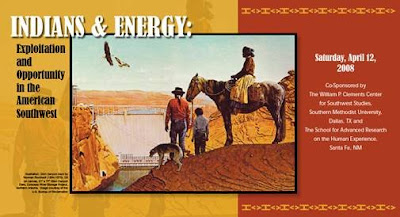The Indian Legal Program at the Sandra Day O’Connor College of Law at Arizona State University, American Indian Policy Institute at ASU, American Indian Law Center, Inc., Native Nations Law and Policy Center at University of California, Los Angeles, National Congress of American Indians, National Indian Gaming Association, Arizona Indian Gaming Association, and the New Mexico Indian Gaming Association are pleased to announce a conference to commemorate and celebrate the twentieth anniversary of the enactment of the Indian Gaming Regulatory Act. The Conference entitled Indian Country’s Winning Hand: 20 Years of IGRA will be held on October 16-17, 2008 at the Ft McDowell Yavapai Nation’s Radisson Fort McDowell Resort & Casino in Scottsdale/Fountain Hills, Arizona.
CONFERENCE AGENDA
Thursday, October 16, 2008
7:00 — 8:00 am Registration
8:00 — 8:45 am Welcome and Introduction
8:45 — 10:20 am A History of the Indian Gaming Regulatory Act
10:20 — 10:45 am Break
10:45 — 12:15 pm Federal Implementation of IGRA: The National Indian Gaming Commission, the Bureau of Indian Affairs and the Department of Justice
12:15 — 2:00 pm Keynote Luncheon
2:00 — 3:30 pm Class III Gaming Compacts and the Impact of Indian Gaming on TribalState Relations
3:30 — 3:50 pm Break
3:50 — 5:30 pm Class III Gaming Compacts and the Impact of Indian Gaming on Tribal–State Relations
6:30 — 8:30 pm Pathbreaker’s Banquet (Courtyard Plaza)
Friday, October 17, 2008
7:30 — 8:30 am Check-In
8:30 — 10:00 am The Economic Impacts of Indian Gaming
10:00 — 10:20 am Break
10:20 — 12:15 pm Indian Gaming’s Impact on the Tribes
12:15 — 2:00 pm Keynote Luncheon
2:00 — 3:15 pm Indian Gaming and the Federal–Tribal Relationship
3:15 — 3:30 pm Break
3:30 — 5:30 pm Where Does Indian Gaming Go From Here?
Confirmed Speakers: (listed alphabetically)
-
Allison Binney (tentative)
-
Dr. Eddie Brown
-
Robert N. Clinton
-
Philip S. Deloria
-
Howard Dickstein, Esq.
-
Franklin Ducheneaux
-
Eric D. Eberhard
-
Larry Echohawk
-
Shawn Ellis
-
Diane G. Enos
-
Franklin Ettawageshik
-
Glenn M. Feldman
-
Matthew L.M. Fletcher
-
Thomas F. Gede
-
Carole E. Goldberg
-
Kevin Gover
-
Stephen M. Hart
-
Jacqueline Johnson
-
Joseph P. Kalt
-
Dan Kolkey
-
Thomas L. LeClaire
-
Steven Andrew Light
-
Arlinda Locklear
-
Michael Lombardi
-
Deron Marquez
-
Heidi McNeil Staudenmaier
-
Kathryn R.L. Rand
-
G. William Rice
-
Fawn Sharp
-
Jim Shore (tentative)
-
Alexander Tallchief Skibine
-
George Skibine
-
Kate Spilde Contreras. Ph. D.
-
Jonathan Taylor
-
Rebecca Tsosie
-
Mark Van Norman
-
Kevin Washburn
-
Richard West
-
Dr. Peterson Zah
Others who have been or are being invited,
not yet confirmed.
Carl J. Artman
Raphael Bear
Melanie Benjamin
Joe A. Garcia
Philip N. Hogen
Mark Macarro
Richard M. Milanovich
Raymond G. Sanchez
Ernest L. Stevens, Jr.
Kimberly Teehee

